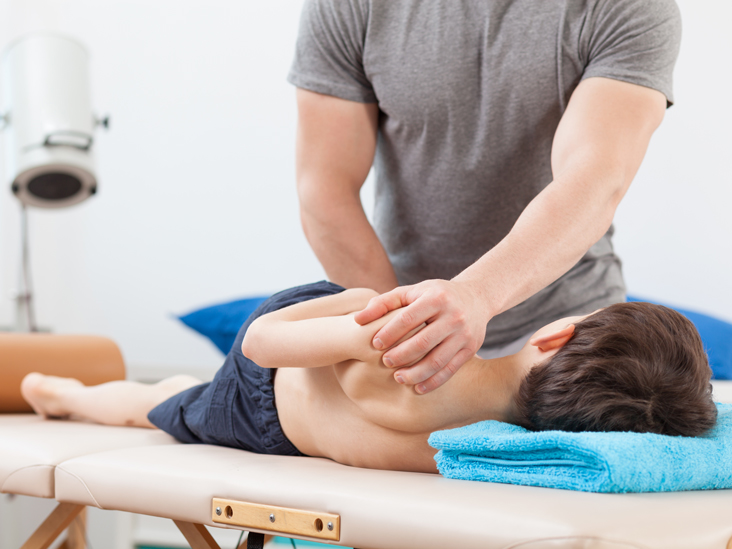Heart Palpitations: Causes, Diagnosis, and Treatments
A heart palpitation is the sensation that your heart has skipped a beat or added an extra beat. It may feel like your heart is racing, pounding, or fluttering. You may become overly aware of your heartbeat. This sensation can also be felt in the neck, throat, or chest. It's also possible that your heart rhythm can change during the palpitations.
Most heart palpitations are harmless and resolve on their own without treatment. But in rare cases, heart palpitations can indicate a serious condition.
Possible causes of heart palpitations include:
- strenuous exercise
- caffeine
- nicotine from tobacco products such as cigarettes and cigars
- stress
- anxiety
- fear
- panic
- dehydration
- hormonal changes, including pregnancy
- electrolyte abnormalities
- low blood sugar
- anemia
- overactive thyroid, or hyperthyroidism
- low levels of oxygen or carbon dioxide in the blood
- blood loss
- shock
- a fever
- over-the-counter (OTC) medications, including cold and cough medications, herbal supplements, and nutritional supplements
- prescription medications, including beta-blockers, asthma inhalers, and decongestants
- illegal drugs, such as amphetamines and cocaine
- heart disease
- arrhythmia, or an irregular heart rhythm
- abnormal heart valves
- smoking
Most heart palpitations are harmless, but they can indicate you have an illness when you also have:
- an arrhythmia
- a diagnosed heart disease
- heart disease risk factors
- a defective heart valve
Seek medical attention right away if you have heart palpitations and a diagnosed heart problem. You should also seek medical attention if you have palpitations that occur with other symptoms such as:
- dizziness
- weakness
- lightheadedness
- fainting
- a loss of consciousness
- confusion
- difficulty breathing
- excessive sweating
- pain, pressure, or tightening in your chest
- pain in your arms, neck, chest, jaw, or upper back
- a resting pulse rate of more than 100 beats per minute
These could be symptoms of a more serious condition.
The cause of heart palpitations can be very difficult to diagnose, especially if the palpitations don't occur while you're in the doctor's office.
Your doctor will conduct a thorough physical exam to identify a cause. Be prepared to answer questions about your
- physical activities
- stress levels
- prescription medication use
- OTC medication and supplement use
- health conditions
If necessary, your doctor may refer you to a heart specialist called a cardiologist. Tests to help rule out certain diseases or heart problems include:
- blood tests
- urine tests
- a stress test
- a recording of the heart's rhythm for 24 hours using a machine called a Holter monitor
- an ultrasound of the heart, or an echocardiogram
- an electrocardiogram
- a chest X-ray
- an electrophysiology study to check your heart's electrical function
- a coronary angiography to check how blood flows through your heart
Treatment depends on the cause of your palpitations. Your doctor will need to address any underlying medical conditions.
Most of the time, the doctor isn't able to find the cause and they aren't able to provide treatment.
If your palpitations are due to lifestyle choices such as smoking or consuming too much caffeine, cutting down or eliminating those substances may be all that you need to do. Ask your doctor about alternative medications or treatments if you think medication may be the cause.
If your doctor tells you that treatment isn't necessary, you can take these steps to decrease your chance of getting palpitations:
- Try to identify your triggers so that you can avoid them. You can do this by keeping a log of your activities, as well as the foods and beverages you eat and noting when you get palpitations.
- If you're anxious or stressed, try relaxation exercises, deep breathing, yoga, or tai chi.
- Limit or stop your intake of caffeine.
- Don't smoke or use tobacco products.
- If medication is causing palpitations, ask your doctor if there are any alternatives.
- Exercise regularly.
- Stick to a healthy diet.
Try to keep your blood pressure and cholesterol levels under control.
-
 6 interesting genetic traits that children will inherit from their parents
6 interesting genetic traits that children will inherit from their parents
-
 7 effects of asparagus on child development
7 effects of asparagus on child development
-
 Does cutting blood hair for babies bring good luck?
Does cutting blood hair for babies bring good luck?
-
 The more babies eat, the higher the height they develop, especially the second kind
The more babies eat, the higher the height they develop, especially the second kind
-
 Children with chicken pox should eat to quickly recover from the disease, without leaving a deep scar?
Children with chicken pox should eat to quickly recover from the disease, without leaving a deep scar?
-
 The more food is cooked, the better it can be for health, especially the second type
The more food is cooked, the better it can be for health, especially the second type
-
 Lissencephaly: Definition, Symptoms, and More
Lissencephaly: Definition, Symptoms, and More
-
 Opisthotonos: Causes, Treatments and Prevention
Opisthotonos: Causes, Treatments and Prevention
-
 22 Herbs, Vitamins, and Supplements: The Ultimate Guide for RA
22 Herbs, Vitamins, and Supplements: The Ultimate Guide for RA
-
 Animal Bite Infections: Definition and Patient Education
Animal Bite Infections: Definition and Patient Education
-
 Stick with Fitness: Tips for Staying Fit with Diabetes
Stick with Fitness: Tips for Staying Fit with Diabetes
-
 Drop Foot: Causes, Treatments, and More
Drop Foot: Causes, Treatments, and More































